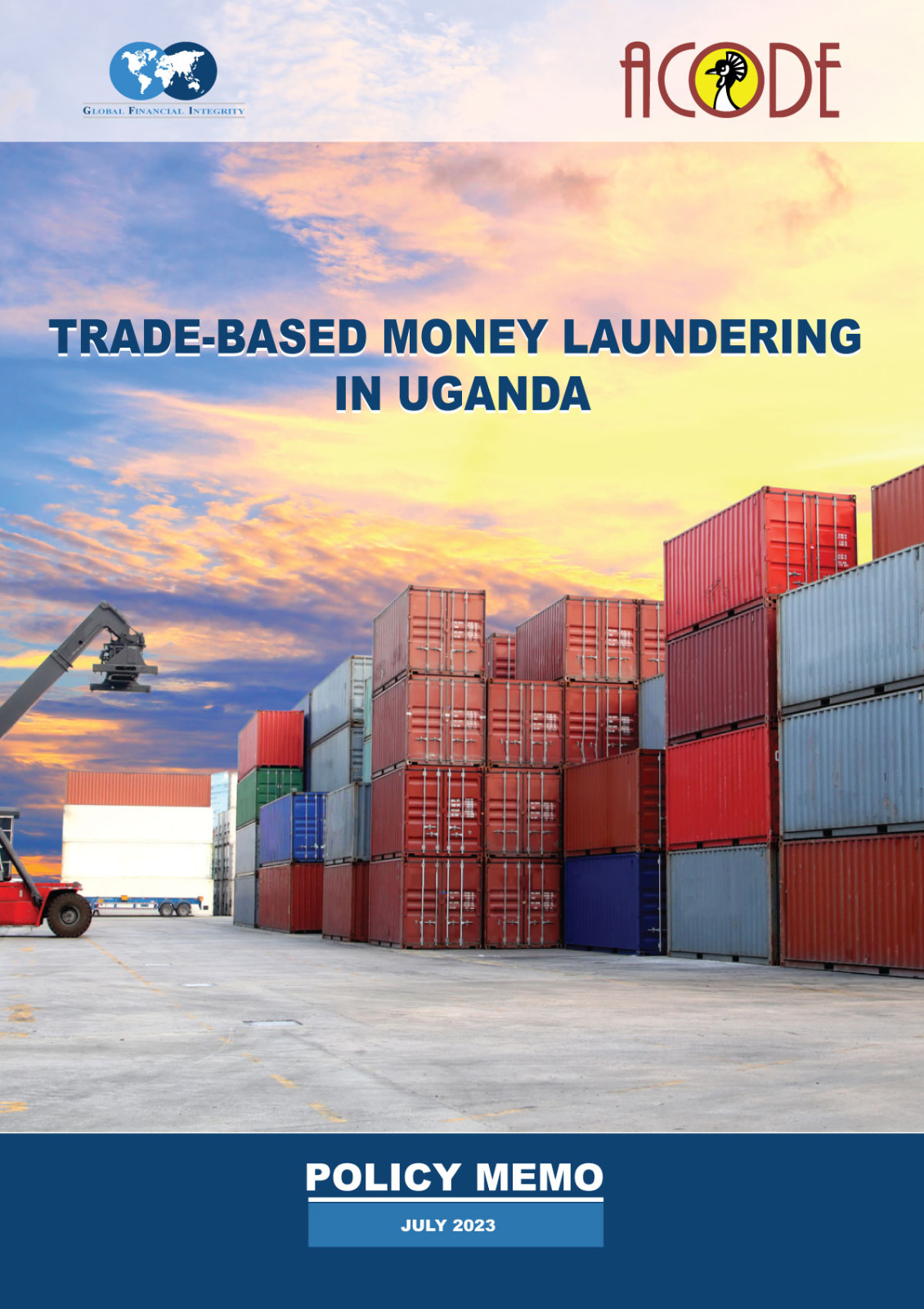July 19, 2023
FOR IMMEDIATE RELEASE
(Washington DC)
Advocates Coalition for Development and Development (ACODE) and Global Financial Integrity (GFI) are proud to announce the release of their joint publication, which delves deep into the analysis of sectors vulnerable to Trade-Based Money Laundering (TBML) and the profound impacts of TBML within Uganda. This study sheds light on the vulnerable sectors, TBML risk factors in Uganda, the efforts made by the Ugandan government to combat this illicit practice, as well as offering key recommendations to strengthen the country’s anti-money laundering regime.
The joint publication, titled “Trade-Based Money Laundering in Uganda” provides an overview of sectors that are particularly susceptible to TBML, including but not limited to import and export, the extractive industry, and the agricultural sector. By uncovering these vulnerabilities, the report aims to enhance understanding and awareness among stakeholders, policymakers, and law enforcement agencies.
Despite these challenges, the publication highlights the commendable efforts of Uganda’s government in combating TBML. The government has demonstrated its commitment to tackle this issue through the implementation of various policies, legislation, and institutional frameworks. The joint publication acknowledges these endeavors and emphasizes the importance of continued collaboration between government agencies, financial institutions, and civil society organizations to ensure a comprehensive and effective response to TBML.
Furthermore, the joint publication identifies key TBML risk factors in Uganda, such as corruption, lack of coordination among stakeholders, relaxed oversight over Free Trade Zones, and limited understanding of TBML and techniques used. These risk factors serve as entry points for criminals to exploit the trade system for illicit financial activities. To address these challenges, ACODE and GFI offer a set of recommendations aimed at enhancing the country’s resilience against TBML. These recommendations include:
- Raising awareness and providing training on TBML among private and public actors.
- Implementing beneficial ownership laws and enforcing the sanctions systems.
- Data sharing and coordination among stakeholders.
- Increasing support and funding to frontline agencies.
Illicit Financial Flows (IFFs) have been recognized as a key challenge to the global development agenda. IFFs drain resources from countries that could finance development. In Uganda, IFFs are part of a larger political economy dynamic in which economic growth and development are impeded by corruption and impunity. It is estimated that Uganda loses more than UGX.2 trillion annually to IFFs. In recent years, Trade-Based Money Laundering has become a commonly used method to launder money. TBML is one of the most sophisticated methods of money laundering, and since it resembles legitimate trade, it is the hardest to detect by financial institutions and customs authorities.
TBML refers to the process of disguising the proceeds of crime through legitimate trade transactions. It poses a significant threat to the integrity of Uganda’s financial system and its economy as a whole. ACODE and GFI have dedicated their expertise to examining this issue and providing actionable insights to combat TBML effectively.
TBML has emerged as a complex and multifaceted form of financial crime, posing significant threats to global economies. Uganda, being an active participant in international trade, is not immune to the adverse effects of TBML. The joint publication meticulously examines the sectors most vulnerable to TBML in Uganda, shedding light on the methodologies employed by money launderers and the detrimental consequences for economic stability and sustainable development.
GFI and ACODE express their gratitude to all the individuals, institutions, and government agencies that contributed to the research and insights presented in this publication. They hope that the findings will stimulate productive dialogue, encourage collaborative actions, and serve as a valuable resource for policymakers, practitioners, and stakeholders invested in combating TBML in Uganda.
For media inquiries, please contact:
Jane Namubiru (ACODE)- [email protected]/ [email protected] .
Or
Dennis Kabia (GFI)[email protected]
About Global Financial Integrity:
Global Financial Integrity (GFI) is a Washington, DC-based think tank focused on illicit financial flows, corruption, illicit trade and money laundering. https://gfintegrity.org/
About ACODE:
ACODE is an independent public policy research and advocacy think tank based in Uganda, working on a wide range of public policy issues. ACODE has for the last seven consecutive years been ranked in the Global go to Think-tanks index report as one of the best think tanks in Uganda and globally. https://www.acode-u.org/

